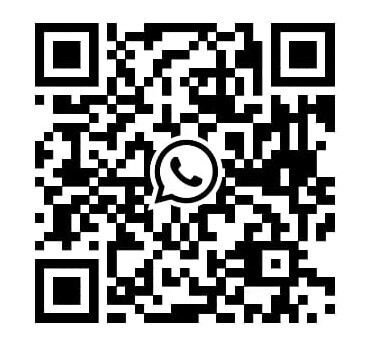Training Mistakes & Retail Staff Training Ideas for Vape Shops
Estimated 0 min read
Proper training can play a huge role in a vape store’s chances for success.
Ensuring that your sales staff is adequately trained to talk to clients is just as important as having the store itself. Customer service can be the tipping point to a successful or failed sale.
The trick is understanding the mistakes you could be making and how to structure a better training program for your staff.
Table Of Contents
5 Common Mistakes With Retail Store Staff Training
There are more than five mistakes you can make regarding retail store staff training, but these are common mistakes that we’ve had experience with. Once we deal with them, real improvements are made.
However, solving these mistakes doesn’t only have an impact on employee performance. It will also impact motivation, your vape store’s sales, and even customer satisfaction, among many other things.
1. Training Is Tedious and Lacks Consistency
Have you ever had a job where training seemed more like an obligatory nuisance than a tool that would help you do your job better? Many of us have.
When training is given only once a year in a huge chunk, it is hard to digest. Employees are much more likely to forget what they learned. Everyone gets bored with that much information at once.
Multiple studies have shown that people are much more likely to retain information over a significant period, giving them enough space to digest information and apply it. In sales, only a tiny percentage of the training is done in class. The rest of it needs to happen in practice.

Having sales agents out in the field talking to clients and applying what you taught them this week will be much more effective than teaching them in a single four-hour session and hoping they’ll remember half of the next day. This method makes it almost impossible for them to apply what they learned.
Training should be spread throughout the year in small, quick, bite-sized sessions that can be easily interpreted and applied.
2. Retail Training Material is Over-Standardized
Sometimes training is bundled into one big, heavily dense session because companies often mistake trying to standardize every single part of the training. This is not a wrong instinct to have, as standardization often makes processes flow better.
However, different salesmen and women will have different roles in training, even if they are all working to achieve the same goal- drive sales.
For instance, if you carry different product ranges and different categories that require a sales expert who knows the product intimately, training should be tailored to each role.
Standardization is only reasonable to a certain extent. Over-standardizing the retail staff training manual would be like standardizing shipments and receptions. While they’re similar tasks trying to achieve the same goal (keeping an organized inventory), they require different processes.
3. Retail Store Staff Training is Inconvenient and Boring
Sales associate skills come naturally to good salespeople. However, specific tidbits and brand identity features need to be included in the training, one of the most important sales training parts.
You’re always going to hire a person who has the spirit of a salesman but needs some polishing in customer service that goes hand in hand with your vape shop brand.
Retail training programs should be full of interactive sales training ideas that keep your staff intrigued and avoid making them feel like they’re wasting their time instead of adding value to their sales associate skills. Not only is training not meant to be boring, but it’s also something your staff looks forward to because it will give them the tools necessary to do a better job.
4. Retail Store Staff Training Is Not Social Enough
The sales associate role is a highly sociable one that requires people skills and employees who can communicate efficiently with the customer. Having boring and tedious retail training material is not only unmotivating but is also counterproductive to the role.
You don’t want to take a social salesperson with people skills and have them sit in front of a desk answering questions. You want to make sure that the training you are submitting to your staff makes sense for the role they will be doing.
Suppose you’re training salespeople who will have constant communication with the client. In that case, you’ll want to replicate that same environment as much as possible because that’s the environment you want them to thrive.
5. Retail Staff Training Needs to be Motivating
While retail training can be made fun, it is not necessarily motivating.
Motivation doesn’t only mean that the employee enjoys the training and looks forward to it. It means that they find value in training as well.
Sure, a fun training program is better than a dull one, but a training program that adds value to your staff is much better.
By helping your employee grow their sales associate skills, you give them something back for attending the training. This way, they will be a lot more open to learn and apply what you teach them instead of longing to be somewhere else.
Retail training material that doesn’t help the employee grow professionally does not motivate them to take it seriously. Staff needs to be constantly reminded that their training is part of their career advancement program and that it will pay in the long run to apply what they’re learning here today.
Retail Staff Training Ideas for Vape Shops
In the section above, we learned the common mistakes that businesses make when training staff. But we didn’t touch on how to make your training program better.
These are four ideas and retail sales training tips that we think could come in handy.
1. Tailor Your Training to Your Customer’s Needs & Preferences
Because we are currently living in a pandemic, we’ll use the challenges and changes this situation has caused as an example of needs and preferences.
However, needs and preferences come from your specific customer market and can vary from industry to industry.

In today’s situation, you’ll encounter tons of customers that feel uneasy at the thought of having to touch a device they’re not sure they’ll purchase. They do not know how many people have put their lips on this vaping device or how many other customers have touched it before them.
Training your staff to understand these preferences and avoid putting the customer in an uncomfortable situation always goes a long way.
2. Involve Your Staff in Training Development
Because you are not living the day-to-day of your customer service agent or salespeople, it’s nearly impossible for you to understand how the market is evolving, hence, how you should be training your new staff.
Staff usually have access to perspectives that bosses and training planners do not, especially in Covid-19, where consumer behavior is bound to change more rapidly than before.
You will want to ask your staff what they think of the training program before teaching it. It’s important to get perspectives from the first line of contact where the action occurs and not behind a desk judging based on long-distance perceptions.
Not only will this make for better retail training material, but it will also make your employees appreciate you for including them.
3. Continuously Re-Visit Product Knowledge Training
Although important in every industry, brushing up on product knowledge in the vape industry is even more critical because vape products are constantly evolving, and innovation surrounds the industry perpetually.
You’ll want to make sure that every time a new vaping technology, device, or innovation, in general, is introduced to the industry, you are properly training your staff on them.
The last thing you want is for a customer to come asking for a specific product and your staff not being able to help them out because they don’t know what it is or how it works.
4. Do Not Reduce Sales Training to Store Sales
Because you are building an online vape shop empire, you’ll need your staff to be familiar with other platforms you use to close sales. That includes familiarizing themselves with your website or other online retailers that sell your products.
This way, you can guarantee that your staff can answer any questions that come their way. Clients purchasing products online will also need assistance with their transactions, so you need to make sure that a big part of your training program is dedicated to online platforms.
Making your customer service agents experts in your sales platform can significantly impact your sales.







